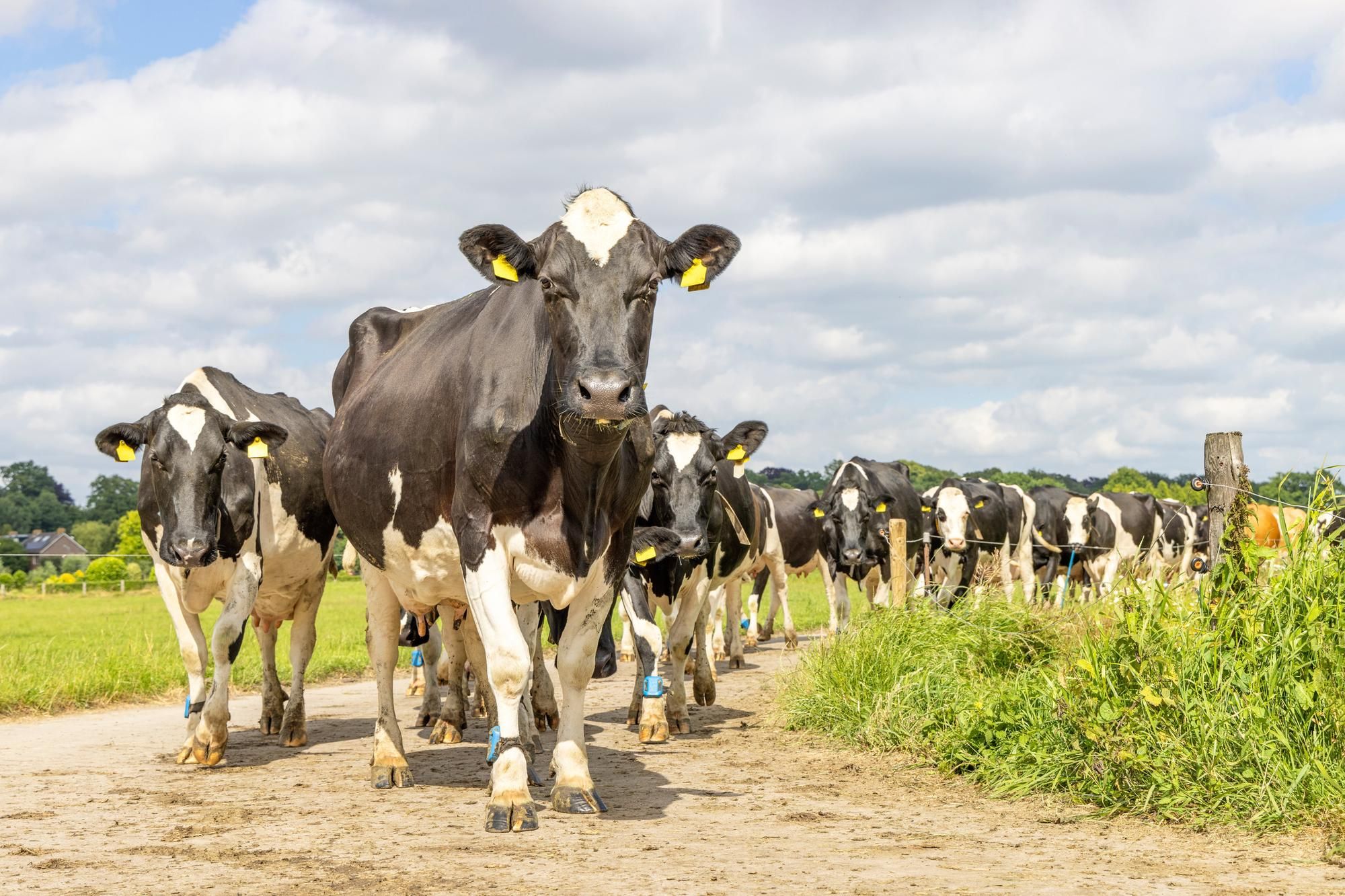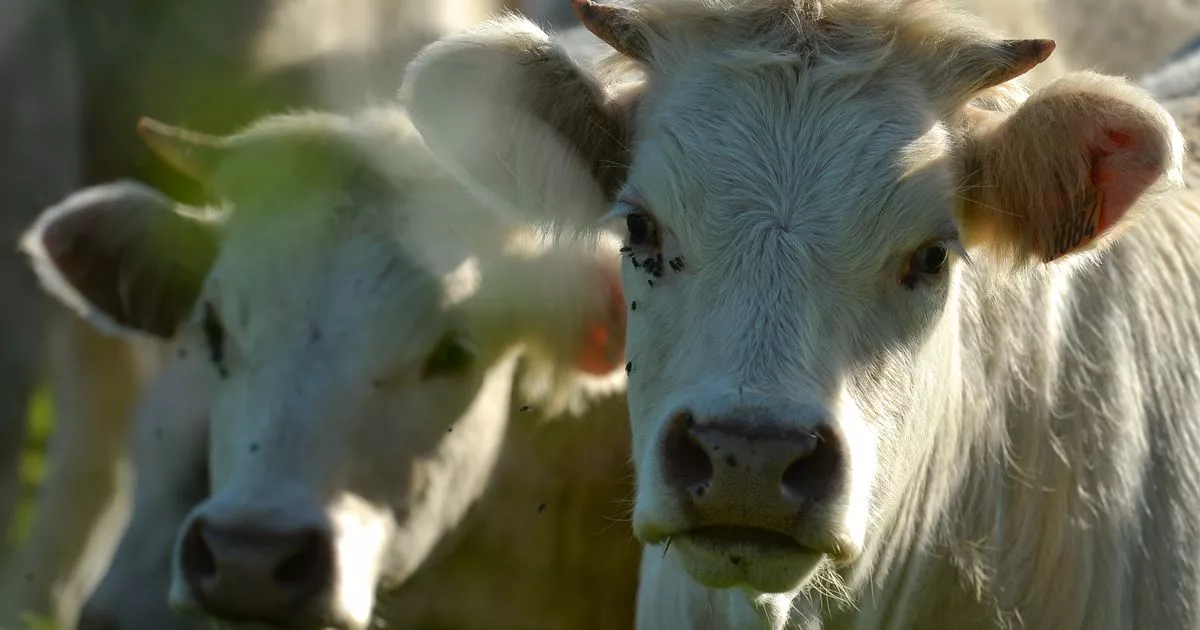You are using an out of date browser. It may not display this or other websites correctly.
You should upgrade or use an alternative browser.
You should upgrade or use an alternative browser.
The Politics of Climate Change: Green New Deal And Other Madness
- Thread starter Ennio
- Start date
at the risk of repeating myself: HOW CAN THE DUTCH GOV. BE SOOO STUPID???
A recent summary below sent to me about energy conservation by the CGV. 
Renewable energy was never going to provide cheap energy. People who think it does don't understand how the grid works. The grid has one basic job - to keep the grid running within a frequency range. In grid terms, there is no such thing as a power station. Energy sources are known as Balancing Mechanisms - which is why power stations have BM codes. Demand for energy goes up and down and the grid calls on balancing mechanisms accordingly to keep the grid frequency stable. If they fail, you get rolling blackouts.
Conventional power stations are known as dispatchable energy. You can call on them at any time. To get the most efficient performance it's best to have them running at their optimal thermal output. Only that doesn't happen because the grid is obliged to use wind energy when it's available - so gas stations have to be dialled down. They are then sat there, with all the overheads of existing, but they can't be decommissioned because we can have weeks at a time with little or no wind. Then there are times with below average wind when you're running gas stations, but below their optimal thermal output.
Those losses are directly a consequence of using intermittent energy - and to get a true cost of wind energy, those costs have to be added to the cost of wind. But the statistics never show this. Balancing cost figures do not include the capital cost - and cost of wear and tear of gas stations.
Moreover, the capital cost of windfarms cannot be directly compared with other sources of power. A gas station might cost around £800m, whereas a wind farm will cost less. But that wind farm will need replacing in under twenty years and will need nee pylon and substation infrastructure. It is not cheap to build and the industry believes more than £50bn will have to be added to bills to connect new wind farms to the grid. Onshore conventional power can use existing infrastructure.
Moreover, the cost of wind is not coming down as the industry claims. Renewable energy is no different to conventional energy in that it requires a great deal of rare earth minerals, the price of which is skyrocketing. Only now, we have to ensure that for every GW of wind capacity we add, that there is equivalent backup capacity. That means either new gas plant (because it's the only thing you can build quickly), or rely on interconnectors to import energy from Europe - just as Europe is shuttering its own nuclear plants and the French nuclear fleet reaches retirement age. We have not seen the last of energy shocks.
Consequently, wind is diverting much needed investment away from more reliable and cost effective sources of energy. The £50bn required for new substations and transmission lines form the north sea alone would pay for two respectably sized nuclear plants. The renewables "industry" has consistently lied about the costs and reliability of wind. The more wind capacity we add, the more instability we add to the grid, and the greater the costs of mitigating it - because the system was never designed to cope with intermittency. The more we invest in wind, the bigger the problem becomes, and the bigger the bill to correct it.
Edit Add:

Renewable energy was never going to provide cheap energy. People who think it does don't understand how the grid works. The grid has one basic job - to keep the grid running within a frequency range. In grid terms, there is no such thing as a power station. Energy sources are known as Balancing Mechanisms - which is why power stations have BM codes. Demand for energy goes up and down and the grid calls on balancing mechanisms accordingly to keep the grid frequency stable. If they fail, you get rolling blackouts.
Conventional power stations are known as dispatchable energy. You can call on them at any time. To get the most efficient performance it's best to have them running at their optimal thermal output. Only that doesn't happen because the grid is obliged to use wind energy when it's available - so gas stations have to be dialled down. They are then sat there, with all the overheads of existing, but they can't be decommissioned because we can have weeks at a time with little or no wind. Then there are times with below average wind when you're running gas stations, but below their optimal thermal output.
Those losses are directly a consequence of using intermittent energy - and to get a true cost of wind energy, those costs have to be added to the cost of wind. But the statistics never show this. Balancing cost figures do not include the capital cost - and cost of wear and tear of gas stations.
Moreover, the capital cost of windfarms cannot be directly compared with other sources of power. A gas station might cost around £800m, whereas a wind farm will cost less. But that wind farm will need replacing in under twenty years and will need nee pylon and substation infrastructure. It is not cheap to build and the industry believes more than £50bn will have to be added to bills to connect new wind farms to the grid. Onshore conventional power can use existing infrastructure.
Moreover, the cost of wind is not coming down as the industry claims. Renewable energy is no different to conventional energy in that it requires a great deal of rare earth minerals, the price of which is skyrocketing. Only now, we have to ensure that for every GW of wind capacity we add, that there is equivalent backup capacity. That means either new gas plant (because it's the only thing you can build quickly), or rely on interconnectors to import energy from Europe - just as Europe is shuttering its own nuclear plants and the French nuclear fleet reaches retirement age. We have not seen the last of energy shocks.
Consequently, wind is diverting much needed investment away from more reliable and cost effective sources of energy. The £50bn required for new substations and transmission lines form the north sea alone would pay for two respectably sized nuclear plants. The renewables "industry" has consistently lied about the costs and reliability of wind. The more wind capacity we add, the more instability we add to the grid, and the greater the costs of mitigating it - because the system was never designed to cope with intermittency. The more we invest in wind, the bigger the problem becomes, and the bigger the bill to correct it.
Edit Add:
Attachments
Last edited:
One thing seems clear : this civilization is not renewable by any of those means which originate from the problem (be it nuclear energy).
It is Humanity itself which needs to be renewed OSIT...
One can see that over the decades, they demonized nuclear tech and then revised it, knowing the vast profits and potential it could generate within today's starving energy markets.
Oklo plans two plants in Southern Ohio : New Nuclear - World Nuclear News
Oklo and the Southern Ohio Diversification Initiative have signed an agreement for land to host two of its advanced reactor plants in Southern Ohio.
May 19, 2023, at 7:03 AM GMT+2
OFFICIAL TRAILER | NUCLEAR NOW | DOCUMENTARY
NUCLEAR NOW takes viewers on a mind-opening journey with legendary director Oliver Stone as he reveals the true history of nuclear energy and its potential to solve climate change. The looming climate crisis remains unresolved, and the volume of carbon-free electricity needed over the next 30 years is almost unimaginable. This film aims to remove the fears associated with nuclear energy and highlight the sustainability and affordability it can bring in the pursuit of restoring the world’s ecosystems and economies. In Theaters April 28, 2023. Learn more at https://www.nuclearnowfilm.com/#NuclearNowFilm
BHelmet
The Living Force
Kinda like no bags, then paper bags, then plastic bags, and now back to paper followed by bring your own etc etc. Keep people confused and arguing.One can see that over the decades, they demonized nuclear tech and then revised it, knowing the vast profits and potential it could generate within today's starving energy markets.
This may belong here and a cheap laugh.
Electric scooter explodes while being ridden - pants on fire!
Electric scooter explodes while being ridden - pants on fire!
Other recent examples of electric scooters/bikes exploding in London -This may belong here and a cheap laugh.
Electric scooter explodes while being ridden - pants on fire!
EU prepares new eco-plans: Many products will be banned as a result
They are going to reduce not just the ecological footprint, farms are not enough.Work is underway in Brussels to implement the EU Green Deal. A new eco-design directive is now also planned, which will affect every consumer.
Brussels - It's not just in Germany that laws are being debated and passed right now to combat climate change. Politicians in Brussels are also working on new drafts, but they receive much less attention in this country. Currently, a new Ecodesign Directive is in the works that will redefine which products are allowed on the European market.
EU Green Deal: Ecological footprint must be reduced
The EU's new Ecodesign Directive is part of plans to implement the EU Green Deal. The aim of the directive is to establish a circular economy in the EU that will significantly reduce the European Union's ecological footprint.
Ah? How people will obtain hot water?Accordingly, the EU believes it is necessary to "move away from traditional models and revolutionize the way products are designed, manufactured, used and disposed of," according to the draft, which is available to IPPEN.MEDIA.
In the future, the following points are to be given special consideration in the manufacture of products:
Reusability
Retrofittability
Repairability
Recyclability
Minimal use of chemicals
Energy efficiency
Resource efficiency
EU heating ban in planning
Exactly what the realization of these goals will look like in everyday life remains to be seen. The EU plans are currently still at the beginning of the legislative process. However, it had already become known in April that the new Ecodesign Directive would play a role, particularly in the area of heating.
In line with the objectives described above, it is planned that gas, oil and electric boilers will have to disappear from the market from 2029. A drastic change - which has received little attention in Germany. So it could be similar for other products that do not meet the EU's new requirements.
Exceptions for food & co.
However, the regulation also lists exceptions that are not to be covered by the Ecodesign Directive. These are:
Food
Animal feed
Medicinal products for human use
Veterinary drugs
Live plants, animals and microorganisms
Products of human origin
Products of plants and animals directly related to their future reproduction.
These products should all be unaffected by the new eco-TÜV.
HOW ABOUT BANNING THE EU??????????????????
EU prepares new eco-plans: Many products will be banned as a result
They are going to reduce not just the ecological footprint, farms are not enough.
Ah? How people will obtain hot water?
the climate hysteria is based on the TOTALLY WRONG ASSUMPTION THAT CO2 IS A CLIMATE DRIVER. IT IS NOT.
OIL IS A RENEWABLE RESOURCE.
OIL IS LIKE THE YOLK IN THE EGG, USED BY LIFE TO PRODUCE A CHICKEN THAT CAN ESCAPE THE SHELL.
how about the creation of an institute of common sense =
XPan
The Living Force
I always use this phrase in an ironic sense, especially when it comes to Sweden. In this case it is Scandinavian Airlines which out of an old tradition in aviation, again goes out first of all. Or at least, that's what they claim. Insignificant pretends to be significant...
 (yes, we are 'best in test' in that regard) Probably a collective complex or something.
(yes, we are 'best in test' in that regard) Probably a collective complex or something. 
SAS opens seat reservations for its first-ever commercial electrical flight, but there is a catch
On 2 June at 12:00 CET. SAS opens seat reservations for its first-ever commercial electric flight for people living in Sweden, Norway, and Denmark. "SAS
 www.aviation24.be
www.aviation24.be
SAS opens seat reservations for its first-ever commercial electrical flight, but there is a catch
On 2 June at 12:00 CET. SAS opens seat reservations for its first-ever commercial electric flight for people living in Sweden, Norway, and Denmark. “SAS invites travelers to join in writing this next chapter in aviation history with 30 seats available for reservation on each of the three inaugural flights – which are expected to take place during the course of 2028,” the airline wrote.
“SAS’ goal is net-zero emissions by 2050. An important part of achieving this goal is to develop and use technological innovations such as electric aircraft on shorter trips,” SAS continued
“Since its inception in 1946, SAS has been one of the pioneers in the airline industry, being for instance the first commercial airline operator to fly over the North Pole to significantly shorten flight time between continents. A groundbreaking activity for which SAS received the Columbus Prize. The fact that we can now invite our passengers to the next major milestone in the future of aviation is a natural continuation of that pioneering spirit and a significant step on our journey towards more sustainable aviation,” says Anko van der Werff, President & CEO of SAS.
The ticket price for the inaugural flight will be SEK/NOK/DKK 1946 – a tribute to the year when SAS first started flying. A start-up that also marks the beginning of SAS’ innovative nature, with then-founder Wallenberg stating that “moving from the old to the new is the only tradition worth preserving”.
Reservations can be made at flysas.com/electric starting 2 June at 12:00 CET.
Insanity in Ireland.

 www.independent.ie
www.independent.ie

 www.buzz.ie
www.buzz.ie

Revealed: €600m budget needed to cull 65,000 cows every year for three years to meet climate goals
Up to 65,000 dairy cows may have to be removed from the national herd every year for three years at a cost of €200m if the farming sector is to meet its climate targets.

Agriculture department calls report to cull 200,000 cows a "modelling document'
The number of dairy cows in Ireland has been rising over the past decade despite the amount of methane emissions they produce
Trending content
-
-
Thread 'Coronavirus Pandemic: Apocalypse Now! Or exaggerated scare story?'
- wanderingthomas
Replies: 30K -
-

